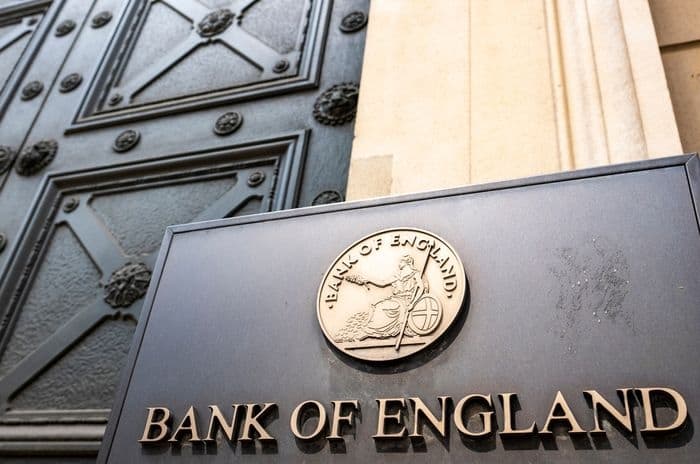Home > Money > News > Bank of England warn of high household debt
Bank of England warn of high household debt
THE Bank of England (BoE) have issued a warning on the high levels of household debt in the UK, writing in their latest Stability Report that "the ability of some households to serve their debts could be challenged by a period of higher unemployment".

This report - which also discusses instability in the world's economy stemming from China and the recent US election - notes that lending grew by 4.1% in the year to September 2016, "close to the fastest growth rate since the global financial crisis".
This puts the total proportion of household debt to income at 133%, a level which has left some households "particularly vulnerable to shocks, such as falls in incomes or increases in interest rates".
However, while this offers a valuable reminder of the need to keep our personal finances in check, the Bank's Governor Mark Carney also affirms that recommendation introduced in 2014 on issuing mortgages will guard against any severe increase in the debt to income ratio.
Recommendations for lenders
Debt repayment: the options available
Five things to know about servicing debt
Dealing with debt in old age
Proposed by the Financial Policy Committee, these two recommendations are important insofar as the vast majority of this ratio is specifically mortgage debt, which has risen from 51% of household income in 1987 to 102% in the second quarter of 2016.
More specifically, the first of these states that a lender should award no more than 15% of their mortgages to applicants who need to borrow more than 4.5% of their household income.
In parallel with this, the second states that lenders should assess the affordability of a mortgage by checking whether an applicant could still afford to repay the home loan even in a situation where interest rates rise by 3%.
The BoE state that, together, these two measures "provide insurance against the possibility of a marked loosening of underwriting standards and a significant increase in the number of highly indebted households".
Room for more debt?
On the other hand, the Bank also admit that the "Recommendations have not been excluding a significant number of prospective mortgagors from the market and their effect on loan size has been modest".
In other words, the recent growth in household debt hasn't really been constrained or reduced by the two recommendations, which are really there to prevent extreme, emergency-level rates of debt from emerging.
This can be seen in how, for most lenders, the proportion of mortgages at the 4.5 limit "is currently around 10%", suggesting that lenders still have room to award more of their home loans to people who need to borrow more than 4.5 times their income.
And the possibility that lenders might soon move closer to the 15% limit is highlighted by the revealing fact that "Average UK house prices were 4.5 times average incomes in Q2 2016, which is high by historical standards".
That average house prices are becoming increasingly higher than average incomes underlines how, if banks want to award more mortgages to people on average incomes, they'll have to come closer to their 15% limit, and thereby increase the national level of household debt.
This remains a risk because, even though weekly UK earnings rose by 2.2% on average last year, house prices have risen by 8.3% over the same period of time.
And such a fast rate of increase isn't due to decelerate anytime soon, since the UK is currently failing to meet its annual house-building target by around 100,000.
Which is why, to put it simply, household debt will continue to increase for as long as the value of homes continues accelerating ahead of the value of incomes.
Unsecured and insecure
Yet to return to the BoE's Stability Report, it mentions how mortgage debt isn't the only part of household debt.
There's also consumer credit, which despite remaining "broadly flat" in historical terms has increased by 10.2% in the year leading to September.
The Bank state that this increase in credit is a good thing insofar as it "stands in stark contrast to market expectations of a weakening in the outlook of the UK economy". However, by the same token, they also worry that it "raises the prospect of a further rise in household indebtedness as increases in unsecured debt outpace growth in household incomes".
Worse still, they write that, in conjunction with the continued ascent of mortgage debt, the increase in unsecured lending now means that "the number of vulnerable households ... has stopped declining".
Nonetheless, even with this increasing vulnerability to economic shocks, there are numerous things households can do to manage their debt, short of waiting for a further increase in incomes and a decline in house prices.
And to begin with, they can get advice over the phone or in person from a variety of charities, who'll advise them on what they can do to deal with their debt in a manageable way.
But of course, while households should always take responsibility for themselves and obtain help where it's available, it would still be nice if the Government could do something about the housing crisis.
Receive consumer updates that matter in our newsletter
Receive consumer updates that matter in our newsletter

We are independent of all of the products and services we compare.

We order our comparison tables by price or feature and never by referral revenue.

We donate at least 5% of our profits to charity, and we aim to be climate positive.
Latest News

26 October 2022
Cost of living showing worrying trends in affordability
16 June 2022
FCA warn lenders on cost of living difficulties


